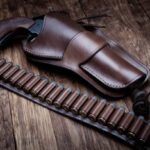Learning how to shoot can feel exciting—but also a little scary—especially when you’re just starting out. Maybe you’re worried about making mistakes. Maybe you’re afraid of recoil or unsure how to hold a gun properly. That’s okay. Everyone starts as a beginner. The good news is, with the right mindset, training, and practice, you can shoot with confidence—even if you’re a beginner.
This guide will explain everything in simple, easy-to-understand language. We’ll walk through the basics of handling a firearm, how to stay safe, and what you can do to improve your shooting skills step by step. By the end, you’ll have a clear understanding of how to build your confidence at the range or in any safe shooting environment.
Why Beginners Often Feel Nervous
If you’re new to shooting, it’s normal to feel nervous. Many beginners are scared of
- The loud sound of gunfire
- Recoil or the “kick” of a gun
- Making mistakes and being judged
- Hurting themselves or others
These fears are completely natural. The key is to not let fear stop you from learning. Confidence doesn’t mean you know everything—it means you’re willing to keep practicing, even when you’re not perfect.
Start with Professional Training
One of the best ways to build confidence is to take a beginner-friendly firearms training course. An experienced instructor can teach you how to hold, aim, and fire a gun safely and correctly.
Good training will cover:
- Basic gun safety rules
- How different types of guns work
- How to stand and grip your firearm
- Aiming and trigger control
Even a few hours of instruction can make a big difference. When someone shows you the right way to do things, it helps you feel more secure and in control.
📌 Tip: Look for local certified instructors or gun ranges that offer beginner classes.
Choose the Right Firearm for Beginners
Your first firearm should be comfortable, easy to use, and not too powerful. Many beginners start with a .22 caliber handgun or a small 9mm pistol. These guns have less recoil and are easier to control.
Here are things to consider:
- Size: The gun should fit well in your hand.
- Weight: It shouldn’t feel too heavy to hold steady.
- Recoil: Look for a gun with low kickback.
- Simplicity: Avoid complex models with many buttons or switches.
Trying out different guns at a shooting range before buying can help you find one that feels right.
Practice Gun Safety at All Times
Safety is the foundation of confident shooting. When you know how to handle your firearm safely, you’ll feel more relaxed and sure of yourself.
4 Rules of Gun Safety:
- Treat every gun as if it’s loaded.
- Always point the gun in a safe direction.
- Keep your finger off the trigger until you’re ready to shoot.
- Know what your target is—and what’s beyond it.
Practicing these rules every time you handle a gun builds good habits and confidence.
Start with Dry Fire Practice at Home
You don’t always have to be at the range to improve your skills. Dry-fire practice means practicing without any bullets in the gun. Make sure the gun is unloaded and there’s no ammo in the room.
With dry fire drills, you can practice:
- Drawing the gun from a holster
- Aiming at a target
- Trigger control
- Recoil management (without actual recoil)
Dry-fire practice helps build muscle memory. The more you repeat the right actions, the more confident and automatic they’ll become.
Try Defensive Shooting Drills
Once you’re comfortable with the basics, it’s time to add more realistic practice. These exercises help you react to real-life situations, like if you ever need to defend yourself.
There are many simple defensive shooting drills for beginners. These drills can teach you how to:
- Move and shoot
- Reload under pressure
- Shoot from different positions
- Improve your reaction time
Start slowly and focus on accuracy. Speed comes later. Practicing these drills builds not only your skill but also your belief in your ability to handle a tough situation.
Don’t Compare Yourself to Others
It’s easy to look at experienced shooters at the range and feel like you don’t measure up. But remember—they were once beginners too.
Instead of comparing, focus on your own progress. Each time you go to the range, try to improve one small thing:
- Better aim
- More stable stance
- Faster reloads
- Tighter shot groupings
Confidence comes from growth, not perfection. Be proud of every small improvement you make.
Keep a Shooting Journal
Tracking your progress can help boost your confidence. You can write down:
- What drills you practiced
- Your target results
- What you did well
- What you want to improve next time
A shooting journal is like a progress report. It helps you see how far you’ve come—and reminds you that you’re getting better with each session.
Know That Confidence Is Built, Not Born
No one is born knowing how to shoot. Confidence is a skill you build through repetition, learning, and patience.
Here are ways to grow your shooting confidence:
- Practice regularly (even 15 minutes a week helps)
- Ask questions—don’t be afraid to learn
- Join a community (like a gun club or online forum)
- Get feedback from instructors or experienced shooters
- Celebrate your progress—no matter how small
Final Thoughts: You’ve Got This
Shooting doesn’t have to be intimidating. With the right mindset, safe habits, and consistent practice, you can shoot with confidence—even if you’re a beginner. Remember, everyone starts somewhere. What matters is that you keep showing up, learning, and improving.
Take it one step at a time. Focus on safety. Get good training. And never forget—confidence comes from doing. The more you practice, the more natural and confident shooting will feel.


